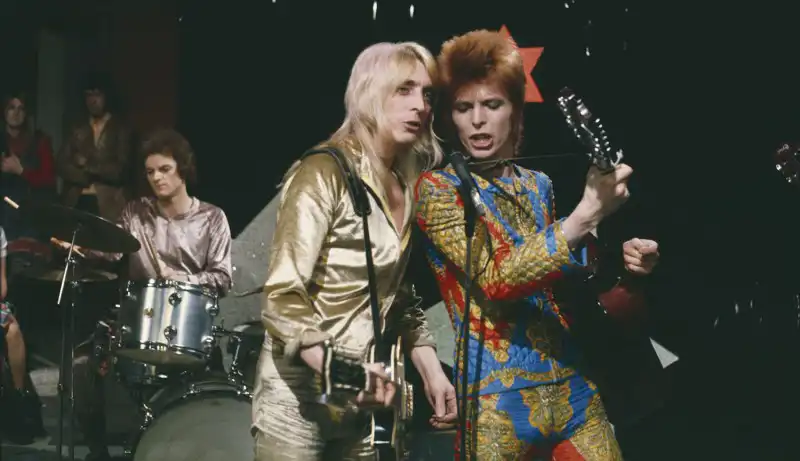Music has the power to unite people, ignite revolutions, and define generations. Throughout history, certain concerts have left a lasting impact on both the music industry and global culture. From legendary performances that broke records to events that sparked social change, these concerts shaped the way we experience live music today. Here are ten of the most iconic concerts that changed music history.

1. The Beatles at Shea Stadium (1965)
Before The Beatles’ groundbreaking performance at Shea Stadium in New York, rock concerts were typically held in smaller venues. This event marked the birth of stadium rock, with over 55,000 screaming fans attending—an unprecedented feat at the time. The overwhelming energy of the crowd even drowned out the band’s own sound system, leading to future advancements in concert amplification.
Why It Changed Music:
- Set the standard for large-scale rock concerts.
- Showed the commercial potential of massive live music events.
- Paved the way for modern stadium tours.
2. Woodstock (1969)
Woodstock wasn’t just a concert; it was a movement. Over 400,000 people gathered in Bethel, New York, for three days of peace, love, and legendary performances by artists like Jimi Hendrix, Janis Joplin, and The Who. It became the defining moment of the counterculture revolution.
Why It Changed Music:
- Cemented rock music’s role in political and social movements.
- Established the idea of large-scale music festivals.
- Inspired future iconic festivals like Glastonbury and Coachella.
3. The Rolling Stones at Altamont (1969)
Dubbed the “anti-Woodstock,” this concert ended in chaos when a fan was fatally stabbed by Hell’s Angels security. The violence at Altamont symbolized the dark end of the 1960s counterculture dream.
Why It Changed Music:
- Highlighted the importance of proper event security and organization.
- Exposed the dark side of the rock ‘n’ roll lifestyle.
- Influenced regulations and safety measures for future festivals.
Step into the captivating world of Synthetic Dreams by Dubyx. This track blends dreamy electronic beats with smooth, atmospheric sounds, creating an immersive experience that will transport you to another realm. Perfect for those who crave innovative soundscapes and smooth rhythms, Synthetic Dreams is a must-listen. Click the link and let the music take you on a journey! Listen on SoundCloud.
4. Queen at Live Aid (1985)
Live Aid was a global benefit concert held simultaneously in London and Philadelphia to raise money for famine relief in Africa. While the event itself was historic, Queen’s 20-minute set at Wembley Stadium became one of the greatest live performances of all time, with Freddie Mercury’s unmatched stage presence captivating millions.
Why It Changed Music:
- Proved the power of music as a force for charity.
- Set a new benchmark for live performance excellence.
- Inspired future benefit concerts like Live 8 and Global Citizen Festival.
5. Nirvana’s MTV Unplugged (1993)
Nirvana’s acoustic performance for MTV Unplugged was a stark departure from their usual grunge sound. It showcased Kurt Cobain’s raw, vulnerable artistry and became even more poignant following his tragic death months later.
Why It Changed Music:
- Broke the boundaries of grunge, showing its emotional depth.
- Made MTV Unplugged a cultural phenomenon.
- Introduced millions to underground artists through Nirvana’s song choices.
6. The Birth of Coachella (1999)
Coachella started as a small alternative music festival but quickly became the ultimate destination for live music lovers. Today, it sets trends, influences fashion, and solidifies the careers of many emerging artists.
Why It Changed Music:
- Transformed music festivals into cultural events.
- Helped redefine the modern festival experience.
- Merged mainstream and underground artists on the same stage.
7. Beyoncé at Coachella (2018) – ‘Beychella’
Beyoncé’s historic headlining performance at Coachella was a celebration of Black culture, featuring a full marching band, stunning choreography, and anthems of empowerment. She was the first Black woman to headline the festival.
Why It Changed Music:
- Elevated live performances to theatrical productions.
- Inspired greater diversity in festival headliners.
- Broke streaming records and cemented Beyoncé’s status as one of the greatest performers ever.
8. The Last Waltz (1976)
The Band’s farewell concert, The Last Waltz, was a celebration of rock history featuring legendary guest performances from Bob Dylan, Eric Clapton, and Joni Mitchell. The concert was immortalized in Martin Scorsese’s film, making it one of the greatest concert documentaries ever.
Why It Changed Music:
- Showcased the power of collaborations between artists.
- Set the gold standard for concert films.
- Highlighted the importance of music preservation.
9. David Bowie’s Ziggy Stardust Farewell (1973)
David Bowie shocked fans when he abruptly retired his alter ego, Ziggy Stardust, at London’s Hammersmith Odeon. This dramatic farewell changed how artists approached reinvention and persona-building.
Why It Changed Music:
- Demonstrated the power of reinvention in music careers.
- Inspired future artists like Lady Gaga and The Weeknd.
- Marked the rise of theatrical storytelling in rock.
10. Pink Floyd’s The Wall Live in Berlin (1990)
Shortly after the fall of the Berlin Wall, Pink Floyd’s Roger Waters performed The Wall in front of 350,000 people at Potsdamer Platz. This emotional performance symbolized unity and the end of an era.
Why It Changed Music:
- Used music as a tool for historical and political commentary.
- Set a new precedent for grand-scale live productions.
- Showed the global influence of rock music.
Conclusion
These concerts didn’t just entertain—they reshaped the music industry and influenced culture in profound ways. Whether through innovation, activism, or sheer performance brilliance, these legendary moments prove that live music is more than just sound—it’s history in the making.
What are some concerts you think changed music history? Let us know in the comments below!